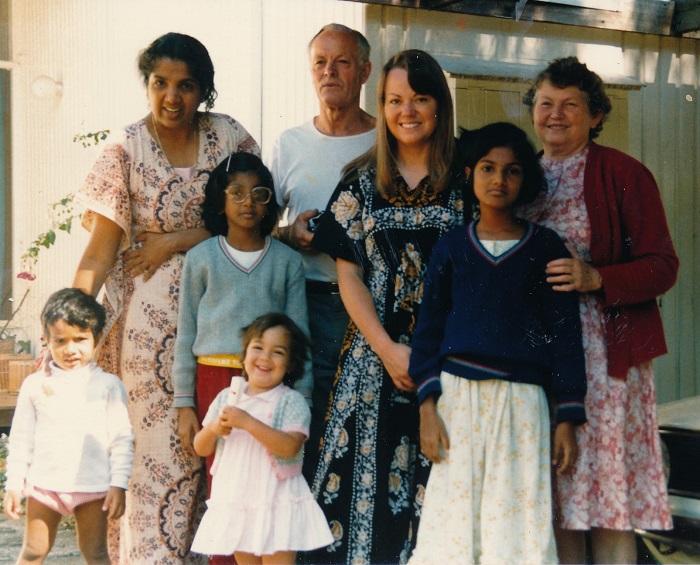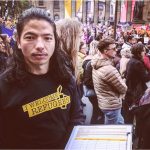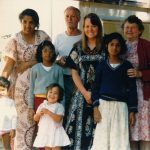The United Nations Refugee Agency (UNHCR) forecast that 1.44 million people will be in need of resettlement across the globe in 2020. Meanwhile, last year less than 7% of people in need of global resettlement were settled into new homes.
Australia currently offers the Community Support Program to help resettle refugees into the country. Under this program, individuals or businesses can support refugees to begin their new lives in Australia. This may sound great, but critics point out that the program has some major flaws, and is actually inaccessible to most people.
As global conflict is creating more and more refugees each year, the Uniting Church WA is calling for a new compassionate and generous refugee sponsorship program in Australia; supporting the introduction of the Community Refugee Sponsorship Initiative.
Lisa Button, Director of the Community Refugee Sponsorship Initiative (CRSI), said that the proposed CRSI would mean that it would be easier for individuals and community groups to make a real difference in the lives of people being resettled as refugees in Australia. Under the CRSI, people could form groups of at least five to raise funds to sponsor a refugee or a refugee family, and commit to prepare them for their arrival, welcome them, and provide practical and financial support during their first year in Australia.
“It’s a way of connecting Australians with refugees arriving from overseas and involving ordinary people in the act of settling and welcoming refugees,” Lisa said.
“Our model recommends that those individuals would need to be attached to a local not-for-profit organisation – so that could be a church, a charity or a sporting club, some sort of legal entity that has a presence in the local community. That organisation would essentially be the backstop, so that if something were to go wrong within that group, or there was an issue that needed to be solved that was outside the capacity of that group, then there’d be an organisation that would step up and become involved.
“The other institutional element of all this, is that group would need to be trained by an organisation that is an expert in refugee settlement, and they would need to be checked and vetted by the government to make sure they were appropriate people to take on the responsibility of welcoming and settling a refugee family.”
People who volunteer in this program would commit to supporting a family for 12 months, beginning with meeting them at the airport, and progressing to all sorts of activities which could include assisting with English learning programs, opening bank accounts, enrolling kids in school, registering for Medicare and other services, learning to drive, and finding permanent accommodation.
Lisa said that the CRSI would be a huge improvement to the current Community Support Program, as it would be cheaper for people to get involved, and would be more accessible to community groups.
“What we currently have is called the Community Support Program,” she said. “The name sounds really promising, but I think it doesn’t actually do what it says on the box.”
In the Community Support Program, private sponsors need to raise all the money to support the new family, as well as paying high Visa and administrative fees.
“We’ve estimated that for a family of five, you’d be looking at about $50 000 just in fees before you start thinking about the money that family is going to need to support themselves for the first 12 months,” Lisa said.
The Community Support Program also doesn’t require a group based approach, which leads to families sponsoring other family members to come to Australia and join them. Lisa said this in itself isn’t a bad thing, but that it means they are doing it without any support, and putting themselves under huge financial pressure as they do anything they can to bring their loved ones to safety.
“Our model says we should embrace that scenario and help people who want to sponsor a relative who’s still living in a precarious situation overseas, but let’s put a group around that family reunion scenario of people who are well-established within their own communities and have the financial, social and professional networks to help people find work and to really become well included in their new communities.”
Lisa said there is also concern that the current program includes criteria for refugees to have work either lined up before they arrive or have demonstrated that they will get a job on arrival, plus a prioritisation of certain countries of origin over others. Both of these criteria mean the program may not be reaching the people who are in the greatest need of resettlement.
Disappointingly, the Community Support Program also takes resettlement numbers out of the Australian Government’s committed refugee resettlement quota, which is currently 18 750 per year.
“This scheme, which has thousands of visas per year, comes out of that number,” Lisa said. “So members of the community think, ‘well why should I get involved in that scheme, I’m just doing what the government would be doing anyway, plus it’s really expensive.’
“One of our asks is that it be additional to whatever commitment the government has already made in relation to the settlements, so that we’re growing the pie over time rather than just changing who’s paying for it. There is pressure to find new creative ways to bring in other stakeholders, like private citizens, businesses and community groups, to be part of the solution and bear some of the responsibility for helping people find new safe options.”
Shankar Kasynathan, Refugee Campaign Co-ordinator for Amnesty Australia, said that improving our current Community Support Program would immediately affect people in Australia who are desperately trying to reunite with their families.
“If this program is improved today, even if it’s not additional, even if just costs were reduced, that would immediately impact the number of families living in Australia who are currently being exploited by this awful scheme,” he said. “The scheme is the only thing that is viable for them in the absence of a functioning family reunion program.
“So what we have is basically desperate, wonderful families trying to reunite with their family members, who are currently using this scheme because there’s nothing else to go with. They will immediately be impacted.”
Shankar knows the impact community refugee sponsorship can have on families from personal experience. In the early 1980s, his own family came to Australia under a similar program, called the Community Refugee Settlement Scheme. His family was sponsored by a Uniting Church in Melbourne.
Born in Sri Lanka, Shankar arrived in Australia at age three when his family was forced to flee their homeland during civil war. He’s heard terrifying stories from his parents of their house being ransacked by police, and being hidden in a neighbours attic as surrounding Tamil houses were burnt down.
On arrival in Australia, Shankar’s family, including his parents and siblings, were welcomed and supported by their sponsor family. They lived with this family for two weeks before finding their own home.
“We were sponsored by a family in 1987,” Shankar said. “It was a Uniting Church that actually helped with resettlement of our family in Victoria, in Melbourne. It was a church house that we moved into, an affordable rental that we purchased off the market and my parents still live in it today.
“This model and approach would make a significant impact on resettlement outcomes compared to a service provider who is strapped for cash and resources, and working across ten plus families as part of their case load.”
The Community Refugee Settlement Scheme, which helped Shankar and his family in the 80s, operated in Australia from 1979 to 1997.
The proposed Community Refugee Sponsorship Initiative has been developed from successful programs already in operation in the United Kingdom and Canada. These programs have not only helped resettle refugees, but also helped to breakdown some of the ‘us’ and ‘them’ mentality. Canada has been successfully running their community sponsorship program for forty years.
“Instead of refugees being this amorphous group of others, strangers who we’ll never know and never understand, [community sponsorship] brings locals and newcomers into close daily contact,” Lisa said. “Refugees become friends, neighbours, coworkers and the parents at the school gate.
“It’s a very powerful thing in terms of creating more support for a welcoming, inclusive society when we have this more intimate understanding of one another.
“In Canada, they describe this as the ripple effect of sponsorship. There was a survey done last year which found about two million Canadians had been directly involved in sponsoring refugees, and the population of Canada is only around 36 million. Around seven million others knew someone who’d been involved in sponsorship, so nine million Canadians had some exposure or some knowledge to this practice of sponsorship. It really makes for a much more understanding and well-informed society than would otherwise be the case.”
The proposed CRSI would also benefit people in rural areas, many of whom are desperate for new people to contribute to their economies and communities. Australia’s current program keeps people in major cities, closer to services. But with community support, people could settle into these regional areas.
“There’s a lot of regional communities who are saying, ‘hey, we want to see overseas migrants coming to our communities as well’, but they don’t have that infrastructure of settlement support,” Lisa said.
“Community sponsorship provides an alternative to that support and it means that refugees who might prefer a regional or rural lifestyle have an opportunity to pursue that.
“In Canada, refugees are now settling in about 400 locations around the country and only about 30 of those are big enough to sustain those major government funded settlement services. The same is happening in the UK.
“It’s often smaller towns that are getting in on this sponsorship scheme and its enriching those towns, as well as providing a new pathway for those refugees.”
Shankar said that the support from the Uniting Church WA is a great step towards making the CRSI a reality in Australia, but now people need to act. He’s asking that individuals approach their community and church leaders and ask them to publicly support the CRSI. Organisations and individuals can write to their local Mayor, asking for their council to advocate towards a CRSI on behalf of the local community.
“This is one of those very few localised solutions to a global crisis,” Shankar said. “And this is where local government has been asked to step up and play a role.”
Inspired?
The Community Refugee Support Initiative has prepared a 2019 CRSI Position Paper which you can download from their website. They also have an interactive map, inviting interested people to express how they would like to support the initiatives, and refugees coming into Australia under this program if and when it becomes an option. For more information, visit their website.
To learn more about how you can get involved in advocating for a Community Refugee Support Initiative in Australia, visit the Amnesty Australia website.
To download the UNHCR’s Projected Global Resettlement Needs 2020, visit the UNHCR website.
To read more about the Uniting Church WA decision, click here.
Heather Dowling




